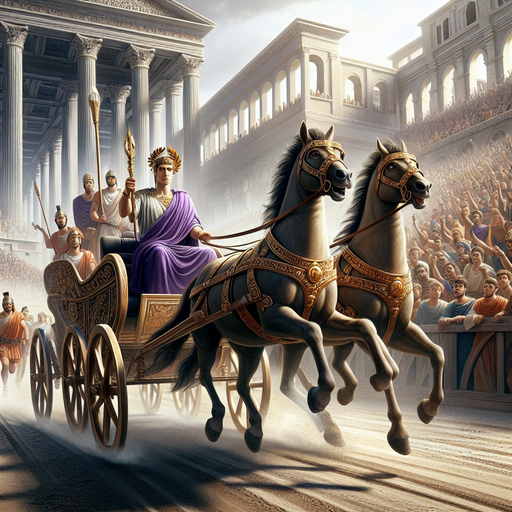What Sport Did Nero Win

In the annals of history, few figures are as colorful and controversial as Nero Claudius Caesar Augustus Germanicus, the fifth Roman Emperor. Known for his extravagant lifestyle and tyrannical rule, Nero's passions extended beyond politics and governance. Among his varied interests was a profound enthusiasm for the arts and competition. This fascination led him to the ancient Olympic Games, where he famously, albeit controversially, claimed victory. But what sport did Nero win, and how did his participation reflect the peculiarities of his reign?
The Olympic Games of Nero's Era
The Olympic Games have always been a hallmark of athletic prowess and fair competition. However, during Nero's time, the games were often subject to the whims of the powerful. Nero's involvement in the Olympics occurred in AD 67 when he traveled to Greece. He was so enamored with Greek culture that he compelled the organizers to postpone the games by two years to coincide with his visit. This unprecedented move set the stage for his contentious participation.
Nero's Unlikely Victory
Nero's ambition to compete led him to the chariot race, one of the most prestigious events of the Olympics. Despite lacking the necessary skills and physical prowess, Nero entered the race with a ten-horse chariot. According to historical accounts, he was thrown from the chariot and failed to complete the race. Nonetheless, he was declared the winner. The rationale behind this decision was rooted in his status as emperor rather than his performance. This outcome remains one of the most infamous examples of favoritism in sports history.
The Aftermath and Historical Impact
Despite his declared victory, Nero's participation in the Olympics did little to enhance his reputation. Instead, it highlighted his penchant for self-aggrandizement and disregard for traditional values. After Nero's death, the Roman Senate annulled his victories, a symbolic gesture to restore the integrity of the games. This episode is often cited in discussions of how power can corrupt competitive fairness and reflects the complex nature of Nero's legacy.
Nero's Olympic victory, or rather his orchestration of it, stands as a testament to his character and the era's political dynamics. It serves as a reminder of how the pursuit of glory can be influenced by power and how history often remembers the peculiarities of such events. While Nero's reign was marked by many controversies, his Olympic venture remains a fascinating footnote that continues to intrigue historians and sports enthusiasts alike.